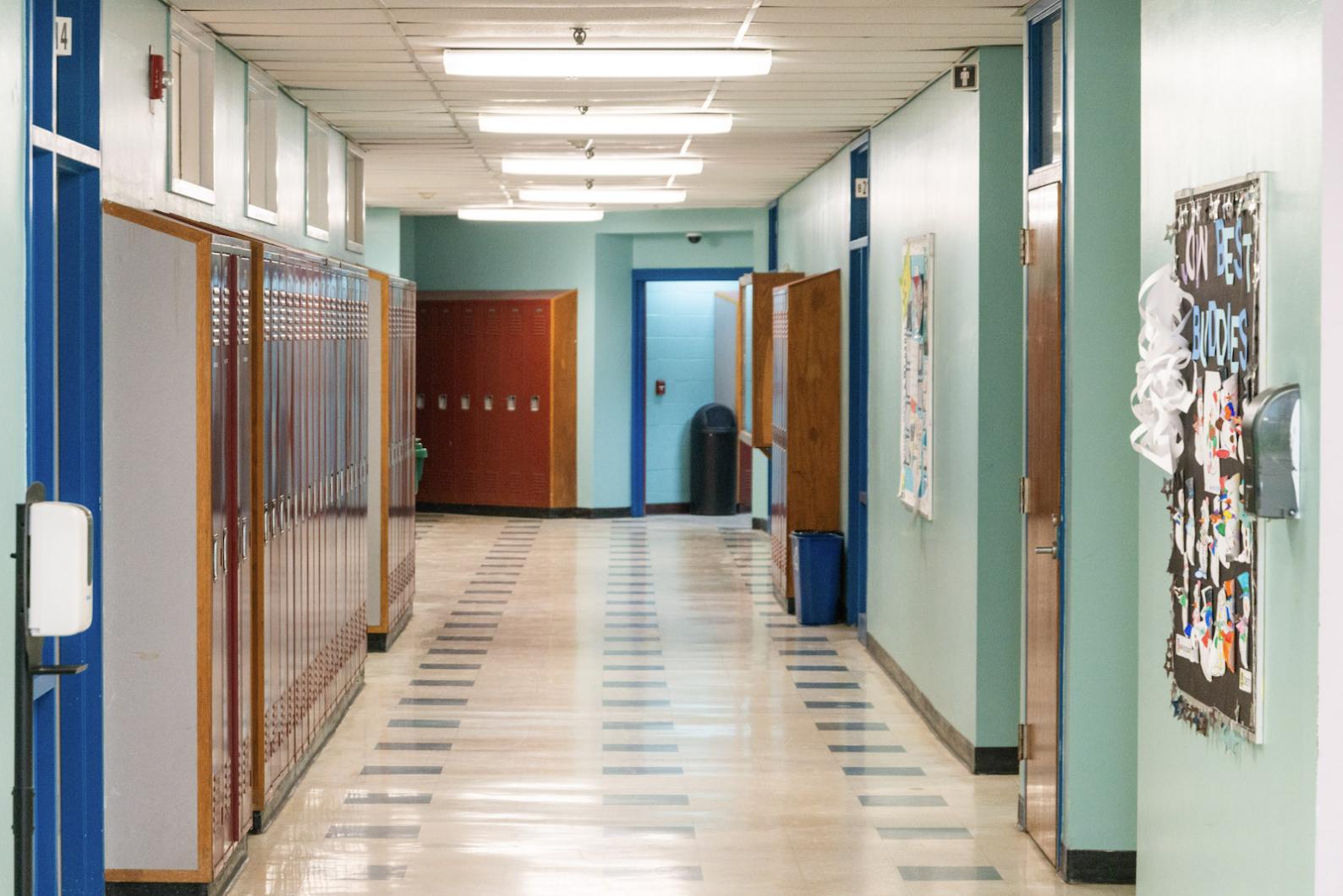Martha’s Vineyard Regional High School principal Sara Dingledy has called for the regional high school committee to consider the mounting toll of its turf field litigation on the school community.
In a heartfelt statement at the committee meeting Monday, Ms. Dingledy said the debate over the field surface at the high school has been a source of frustration for the school and she called for the committee in the new year to refocus on education and the potential for a revamped high school building.
“Increasingly, it is affecting the image and the morale of Martha’s Vineyard Regional High School,” Ms. Dingledy said of the turf fight.
The Oak Bluffs planning board rejected the school committee’s application for a turf field in 2022. The committee appealed the denial and emerged victorious in the Land Court battle late last year. In December, the planning board voted to appeal that decision.
“Students still don’t see meaningful progress, and staff in the building are voicing some frustration that the battle is happening with little input from or engagement with them,” Ms. Dingledy said.
The principal has tried to separate her leadership of the school from the polarizing conflict over athletic field surfaces, she told the committee.
“It does me no good as a leader to align myself in a struggle that’s divisive on the Island. However, right now we find ourselves with continued litigation and maneuvering that does not yet feel collaborative,” she said.
“I am truly agnostic about the surface — many at the high school are,” she added.
From her point of view, Ms. Dingledy said, the main objective for the school committee should be the proposed overhaul of the regional high school in Oak Bluffs. The school recently appointed a manager for a feasibility study to look at options for an upgraded school and the Massachusetts School Building Authority stands to reimburse the district close to 38 per cent for most costs – but only if voters in all six Island towns agree to pay their share of the rest.
“The main project on my mind … is the once in a lifetime opportunity for the Island to completely overhaul our facility with the financial support of the state. This should be the centerpiece of our collective attention,” Ms. Dingledy said, reminding the committee that leaders from all six towns agreed on a cost-sharing formula for the project a year and a half ago.
The high school’s operating budget is also threatened by community sentiment over the ongoing legal fight with the Oak Bluffs planning board, Ms. Dingledy said.
In protest over legal expenditures on the turf field case last year, annual town meetings in the three up-Island towns voted against paying their shares of the high school budget, which delayed approval of this year’s spending plan.
“This is the budget that supports teachers, gets kids into college and into technical fields within our community, welcomes new arrivals and teaches them English,” Ms. Dingledy said.
“Enduring another season of town meetings in which the school leadership has to shadowbox an argument that has nothing to do with the general operation of the school is not something that I look forward to,” she said.
If similar votes occur this spring, the school may not be able to post job openings until the summer, adding delays to the hiring process, Ms. Dingledy said. She asked committee members to speak at this year’s annual town meetings in support of the school’s proposed $26.5 million operating budget.
“Be present to answer questions and ensure that all people know that the operating budget is separate from the litigation and the activities related to the field,” she said.
The high school committee Monday also voted to accept a $2,000 donation for legal costs in the turf case from Terry and Anne Marie Donahue, longtime supporters of the plan for an artificial playing surface among the school’s athletic fields.
After last year’s town meeting votes, the high school committee agreed not to use its legal budget to pursue the case against the Oak Bluffs planning board.
A second $2,000 donation for the legal fees came from Islanders who did not want to be associated with the polarizing case, said school committee member Louis Paciello of Edgartown, who presented the donation on their behalf.
“A few people came to me and gave me this money. They wish to remain anonymous. I understand that this is an issue that causes concern for some in the community,” Mr. Paciello said.
After Chilmark committee member Robert Lionette raised questions about whether the bundled donation meets state requirements, the committee agreed not to vote on accepting it until the school’s legal counsel weighs in.
The school committee also voted unanimously to certify the $26.5 million operating budget for the fiscal year beginning July 1, clearing the way for town meeting votes on the spending plan this spring.







Comments (7)
Comments
Comment policy »